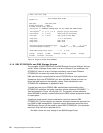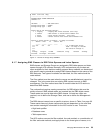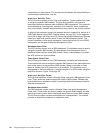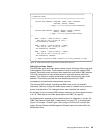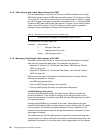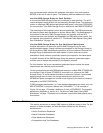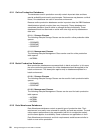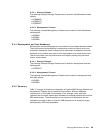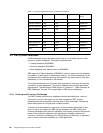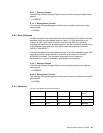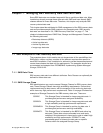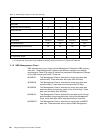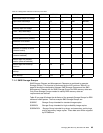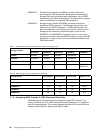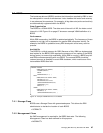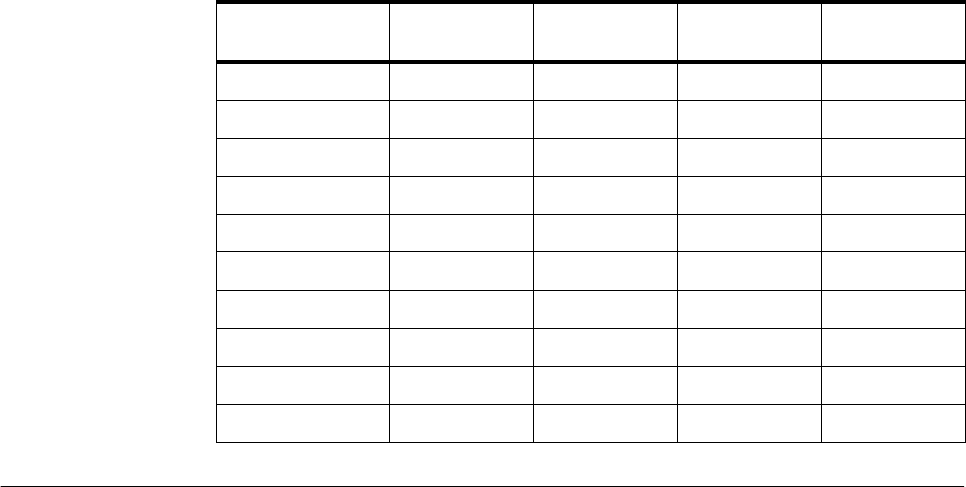
60 Storage Management with DB2 for OS/390
Table 17. Examples of SMS Class Usage for DB2 User Databases
6.3 DB2 System Databases
A DB2 subsystem stores data about itself within a set of tables stored in table
spaces in system databases. The system databases are:
• Catalog database (DSNDB06)
• Directory database (DSNDB01)
• Work database (user defined name or DSNDB07)
DB2 supports a Default database (DSNDB04), which is used when the database
is omitted in a table space or index space creation. The Default database can be
considered a user database and may be handled in the same way as other user
databases. It is not considered in this section.
The system databases have the same data organization, data type and naming
convention as user databases. The system databases have stricter availability
requirements. The examples of SMS classes in Chapter 6.1, “SMS Examples for
DB2 Databases” on page 47 are applicable to DB2 system databases.
6.3.1 Catalog and Directory Databases
The DB2 Catalog and Directory databases contain data definitions, recovery
information, security information for the data managed by DB2. If these
databases become unavailable, business data is also unavailable. Recovering
these table spaces is a lengthy and complex process.
To ensure that the availability requirement of the production databases is met,
even in case of an outage of a DB2 system database, the DB2 Catalog and
Directory databases must have an availability requirement at least as stringent as
those of the production database with the highest availability requirement.
Corollary: continuous availability of the DB2 Catalog and Directory is required in
order to have continuous availability for a DB2 application.
Databases Performance Availability Migration Storage
Group
Online Production Avg Avg NO SGDB20
Online Production High Avg NO SGDBFAST
Online Production High High NO SGDBCRIT
Batch Production Low Low YES SGDB21
Batch Production Good Avg NO SGDB20
Batch Production High High NO SGDBCRIT
Data Warehouse Low Avg YES SGDB21
Data Warehouse High Good NO SGDBFAST
Development Low Low YES SGDB22
Test Low Low YES SGDBTEST



